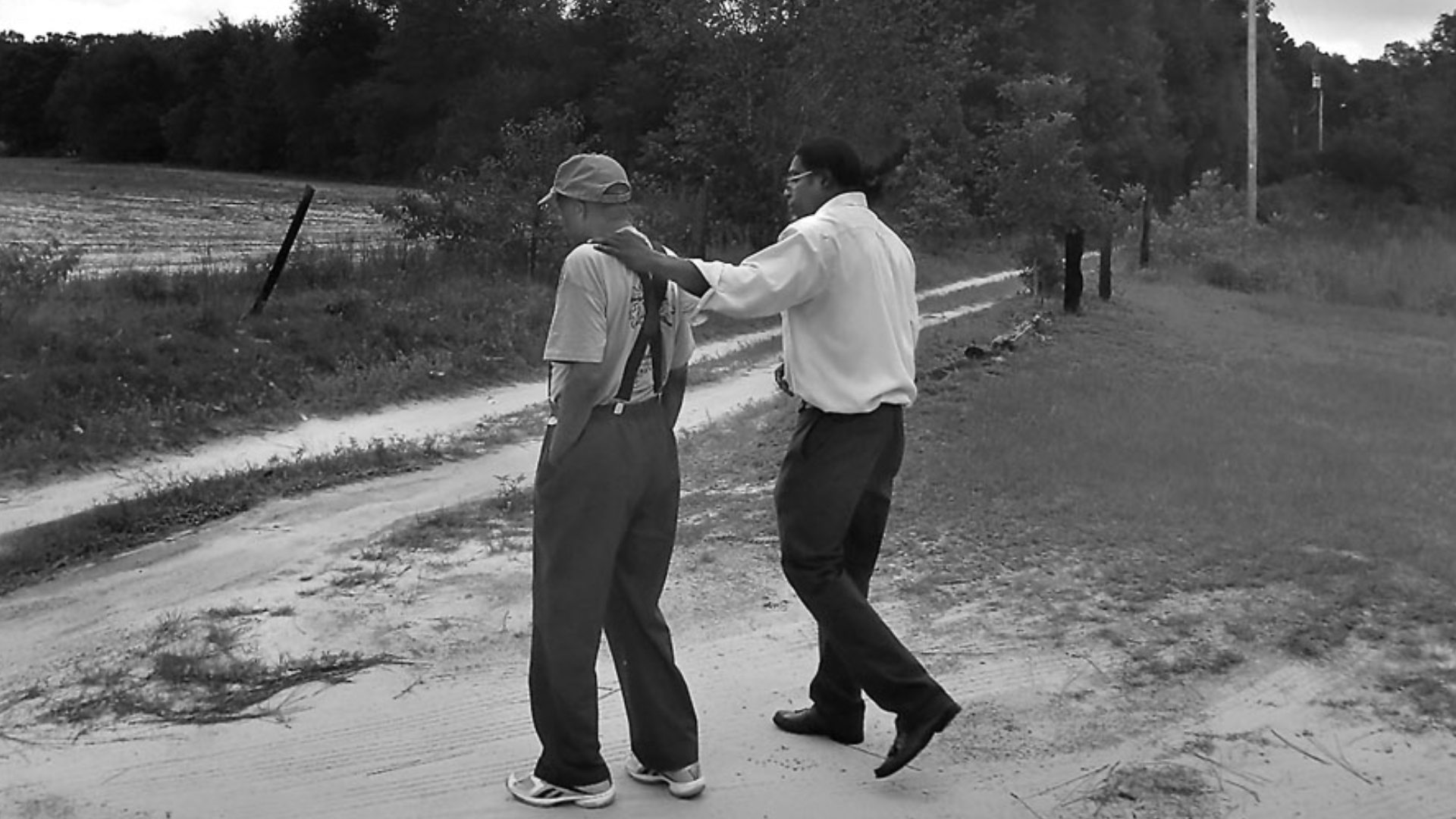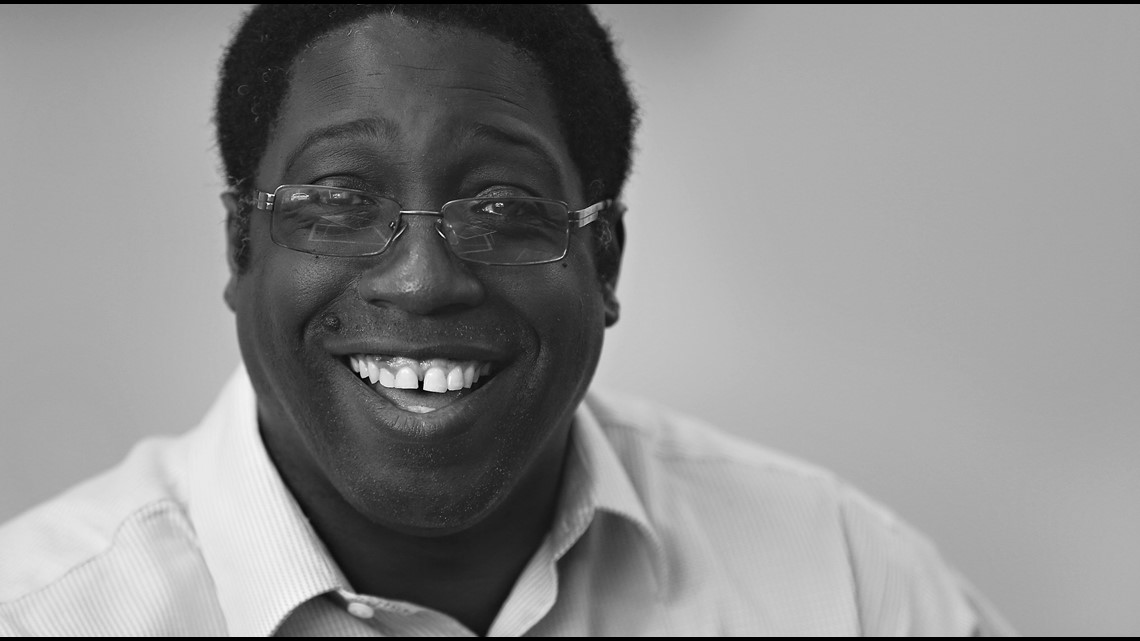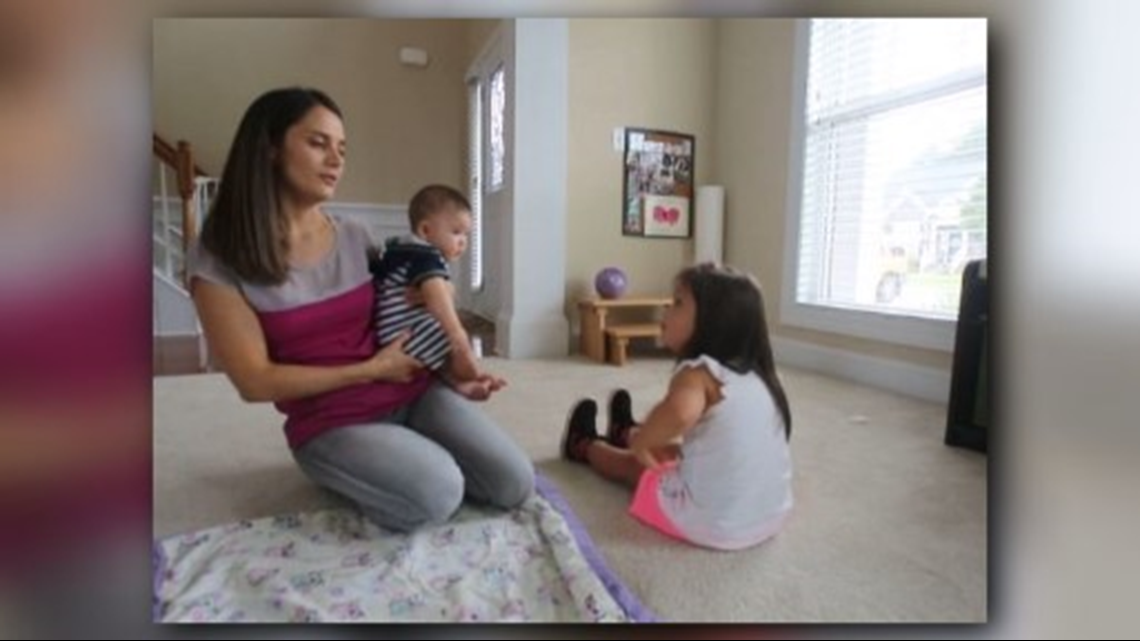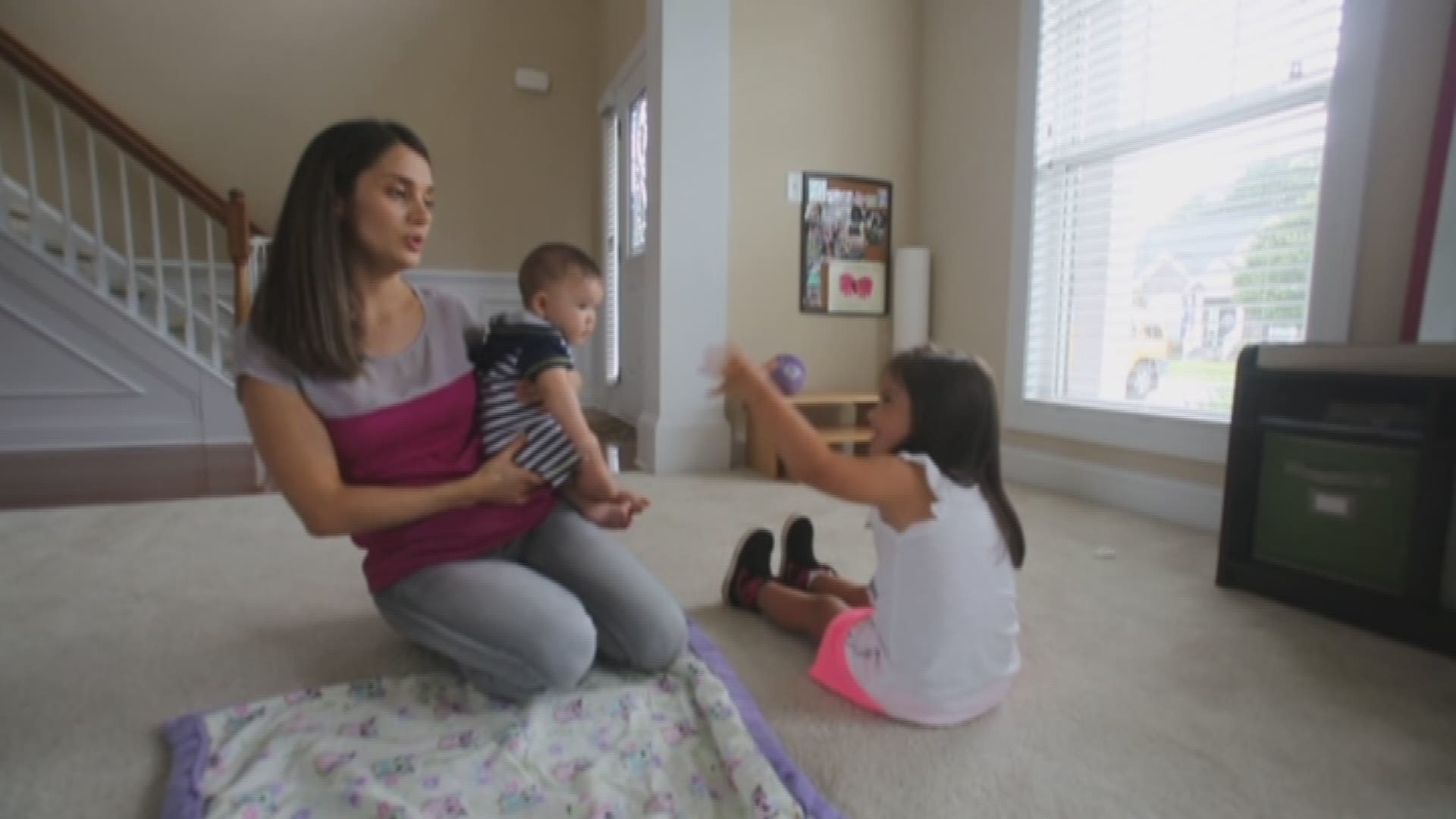Taking care of granddaddy: Family caregivers and how to get help
"Family caregivers are the backbone of our care system", says Rhonda Richards, a senior AARP legislative representative.

Chris Lyles is 43-years-old with a degree in criminal justice.
He is not married.
He doesn't have any kids.
He was thinking about getting into politics, perhaps running for the local school board.
It was his grandfather, Wilbur Lee Jeffcoat, who inspired him to consider politics.
His grandfather had a long career at Overnight Shipping. He was on the Lexington Medical Board. He is a third degree Mason. He helped to get a local senior center built in his hometown of Swansea.
His grandfather was the also the vice-chair of the South Carolina Democratic Party. He went to Colorado for the Democratic Convention. Grandson Chris got to go along. His grandfather was a super delegate and he cast his vote for President Obama.
But now, his grandfather only remembers these things every so often.
Less and less each day.
Wilbur Lee Jeffcoat has been diagnosed with Alzheimer’s disease. And for now, he is home.
It’s not hard to imagine Chris’s grandfather’s life before the Alzheimer’s diagnosis.
Pictures line every wall. Chris’s grandfather can be seen shaking President Bill Clinton’s hand. President Jimmy Carter flashes his signature grin as he extends his hand to Chris’s grandfather. Awards, citations and Senate proclamations cover a whole wall.
The reason his grandfather can still be at home is because of his family -- and largely his grandson, Chris.


Chris helps his grandfather get up, get washed, get dressed and undressed, go to the doctor, pay bills, separate and keep track of his grandparent’s medication and helps him eat. The disease makes Chris’s grandfather a night owl, often staying up until 4 AM.
The cost for someone to stay overnight or even come in for a few hours a week is expensive, even with insurance, especially with Medicare.
And like many with Alzheimer’s, Chris’s grandfather wanders. It’s why he wears a GPS bracelet through a Lexington County Sheriff’s Department initiative called ‘Project Lifesaver.’ Other South Carolina sheriff’s departments offer the free service, as well. With the GPS bracelet, Jeffcoat can be found in minutes instead of hours.
When you spend time with Chris, you can see he is a patient man. He never seems to get mad or upset at his grandfather. He just tries to redirect him. Sometimes he won’t get in or out of the car. Getting him to think of something else usually works. A few things work really well, like yogurt or ice cream.
On trips to the doctor or something that might keep them out for a while, Chris packs a fresh set of clothes, along with a cooler full of drinks and snacks. The most popular is the yogurt. The other thing that works well is the mention of his wife’s name, Anniebell. Chris can say, “Anniebell is waiting on you granddad, she’s over this way.”
According to Lt. Governor’s Office on Aging, more than 770,000 family caregivers in South Carolina provide 737 million hours of “free” services to chronically ill, disabled, or elderly love ones. If their services were replaced by caregivers paid $10.04/hour, the cost would be almost $7.4 billion each year.
Unpaid caregivers provide 80% of all long-term care in the United States. Nationwide, more than 16 million family members and other unpaid caregivers provide about 18 billion hours of care to people with Alzheimer’s. If you had to put a dollar amount on what this would cost, the estimate would be $232 billion dollars, according to the 2017 Alzheimer’s Association Facts and Figures Report.
In South Carolina, more than 89,000 people have been diagnosed with Alzheimer’s. That is roughly equal to the population of Mt. Pleasant. More South Carolinians die from Alzheimer disease than in any other state, according to the 2018 Alzheimer’s Association facts and figures report. In South Carolina 309,000 caregivers provide 352 millions of hours of unpaid care for a total of $4.4 billion for just Alzheimer's in SC according to the Alzheimer's Association.
African-Americans are twice as likely as whites to get Alzheimer’s.
Chris thinks of himself as lucky. Yes, lucky.
He lives in a home owned by a family member, so he doesn't have to worry about a mortgage or rent. He works occasionally for a local attorney as a process server and this gives him some spending money. He will tell you that being able to care for his grandfather and his grandmother (on his mother’s side) who lives a few miles down the road, is a blessing. Otherwise they wouldn't be able to live at home.
His grandmother is on Medicaid, and that allows her to have healthcare workers come in a few times each day. Chris comes by on Tuesdays, when caregivers are staggered. He takes her to the senior center or just spends time with her on the porch and helps her remember to eat.
Chris knows that the time he spends with his grandfather and to a certain extent his grandmother, is the reason that they can be at home surrounded by things that still feel familiar.
In August, Chris headed to Emory University in Atlanta to participate in a clinical trial to see what kind of chances he might have in getting Alzheimer’s. Although there is no one test that can confirm the disease, he knows it’s a real possibility. He has had numerous family members who have had the disease. But it’s hard to tell, he says, since he thinks there is a reluctance in the African-American community to get a diagnosis. Many family members will put off symptoms as just the natural part of aging. However, Alzheimer’s is not due to old age, but usually only older folks get the disease. There is an early onset Alzheimer’s that presents in folks as soon as their late 40s-50s.
With that in mind, and knowing the toll caregiving can take, Chris is trying to be healthier. He has stopped eating fried food, pork, and rarely eats meat. He says studies are showing that high blood pressure can be a contributing factor.
Chris does get to spend some time at his home. He also goes on the occasional date, when other family members can pitch in here and there, but the reality is that his aunts and uncles and brother are married and have kids, so it’s difficult.
But this is his job, what he does now -- because he can and wants to. He knows how important his role is and feels like it’s the only choice he can make.
He’s not sure what will happen when he no longer has to look after his grandparents. Chris knows that jumping into the job pool will be difficult because his work history will be the caring of his grandparents.
But he’s not worried.
Instead, he jokes, “I’ve got my niece's birthday party, need to get her something nice. I need to be nice to her, she could be taking care of me when I get old.”
Websites for More Information and Help
South Carolina Respite Coalition (Apply for Respite Vouchers)
Email: respite@screpitecoalition.org Phone (803) 935-5027 or (866) 345-6786
Alzheimer's Caregiver Respite Program (For Alzheimer's caregivers)
Caring offers different programs for caregivers, contacts for those helping with autism, cancer, Alzheimer’s and other diseases.
South Carolina Lt. Governor’s Office on Aging (800) 868-9095
Care SC offers one-stop shopping for all resources for caregivers in South Carolina, helps with providers, services, reporting problems at nursing home, finding care facilities and other resources for family caregivers.
Leeza’s Care Connection (803) 888-7525
Project Lifesaver (GPS tracking device—free in counties below)
Richland county, Aiken County, N. Augusta, Horry County-Myrtle Beach, Charleston County, Lee County, Oconee County, Chester County, Darlington County, Orangeburg and Sumter Counties.
Dementia Dialogues is a FREE, 5-session training course designed to equip caregivers and CNAs for hands-on care, offering specialized insight and practical problem solving. The course is offered around the state through USC's School of Public Health.
Family Connections offers help for caregivers of children with a disability or special needs.
(800) 578-8750
The SC Alzheimer’s Disease Registry is a comprehensive statewide registry of SC residents diagnosed with Alzheimer’s Disease and Related Dementias (ADRD). View the 2018 Annual Report for the most recent full year of data available from all reporting sources.
Remember, you can always call any of these organizations and they will help walk you through what other services might be available for caregivers.
How to Find Help in South Carolina
In January, President Trump signed into law the R.A.I.S.E (Recognize, Assist, Include, Support, Engaged) Act.
The act is a bipartisan law that directs the Secretary of Health and Human Services to develop and sustain a national strategy to recognize and support caregivers over the next three years.
AARP says that 43.5 million caregivers have provided unpaid care to an adult or child in the last 12 months. That’s an estimated 37 billion hours of care, 34.2M to an adult who is 50 or older.
According to the Lt. Governor’s Office on Aging, there are over 770,000 caregivers in South Carolina. If these caregivers didn’t exist and someone had to be paid to provide that care (at $10.04/hour), it would cost $7.4 billion each YEAR. And that number goes up every year.
Helping caregivers is a financially sound move, but more than that, it allows those who are sick to be cared for at home.
Most family caregivers do more than help with the medical needs and being a patient advocate. They prepare meals, do housekeeping, monitor medications, assist with basic needs like bathing and getting dressed. They take care of transportation and emotional needs, too.
Because of all these things, family caregivers are at a higher risk for stress, depression, physical and financial problems and increased in mortality.
But in South Carolina, programs are in place to help these caregivers.
Lisa Guerrero is a military wife and her husband was assigned to Fort Jackson and they left their home in Colorado to come to South Carolina. Both she and her husband were from Ecuador and they knew no one here.


Guerrero knew that she was going to have a baby and that the baby would be born with Down Syndrome, but as she says, “we didn’t care, we already loved her." But shortly after the baby was born, her husband was deployed and she was all alone with her new baby.
“It was overwhelming. I just needed a break, my mom to come and make dinner, my dad to watch my daughter while I could get out for a few hours.” But here parents were home in Ecuador. She remembered the South Carolina Respite Coalition.
She reached out to them after hearing about them again at a conference for families with children who have Down Syndrome. They were able to provide her money to have someone she trusted come in to watch her child while she ran errands.
Janet Altman with the South Carolina Respite Coalition says, “The mission of the South Carolina Respite Coalition is to help family caregivers because often they make sacrifices that are detrimental to their health.”
Altman goes on to say that one of the things they offer caregivers are vouchers that allow caregivers to use in any way they want to get away whether it’s for a few hours, a day or even a weekend. For the last 20 years this has been the mission of the coalition.
They offer a voucher program that allows family caregivers to request money that can allow someone to come and watch your loved one while you take a break. It could be something as simple as being able to get out and get your hair done, see a movie or get away for the weekend. The idea is that the break will allow the caregiver to not burn out.
Not only are vouchers available, but Central Midlands Council of Government's aging program director Candice Holloway holds a caregivers support group once a month.
Holloway says her job is to advocate solely for the caregiver. She tells caregivers this is a different program. This one looks to help the caregiver.
As Guerrero says, “We caregivers have hard work these groups are willing to help caregivers.” She says she is always telling her friends, “I know when I talked to you, you sounded upset, you sounded like me. Call them. Just call them.”


